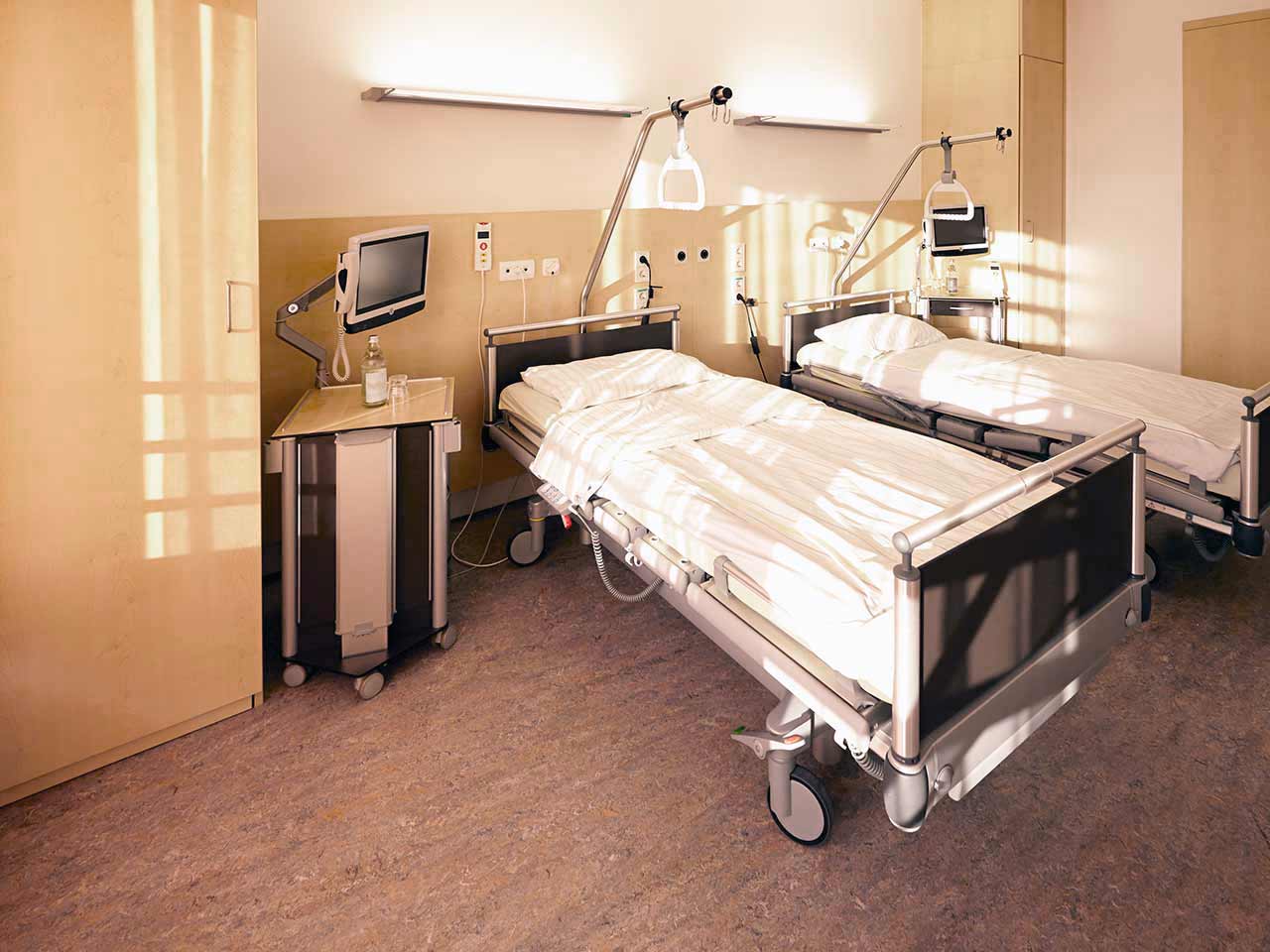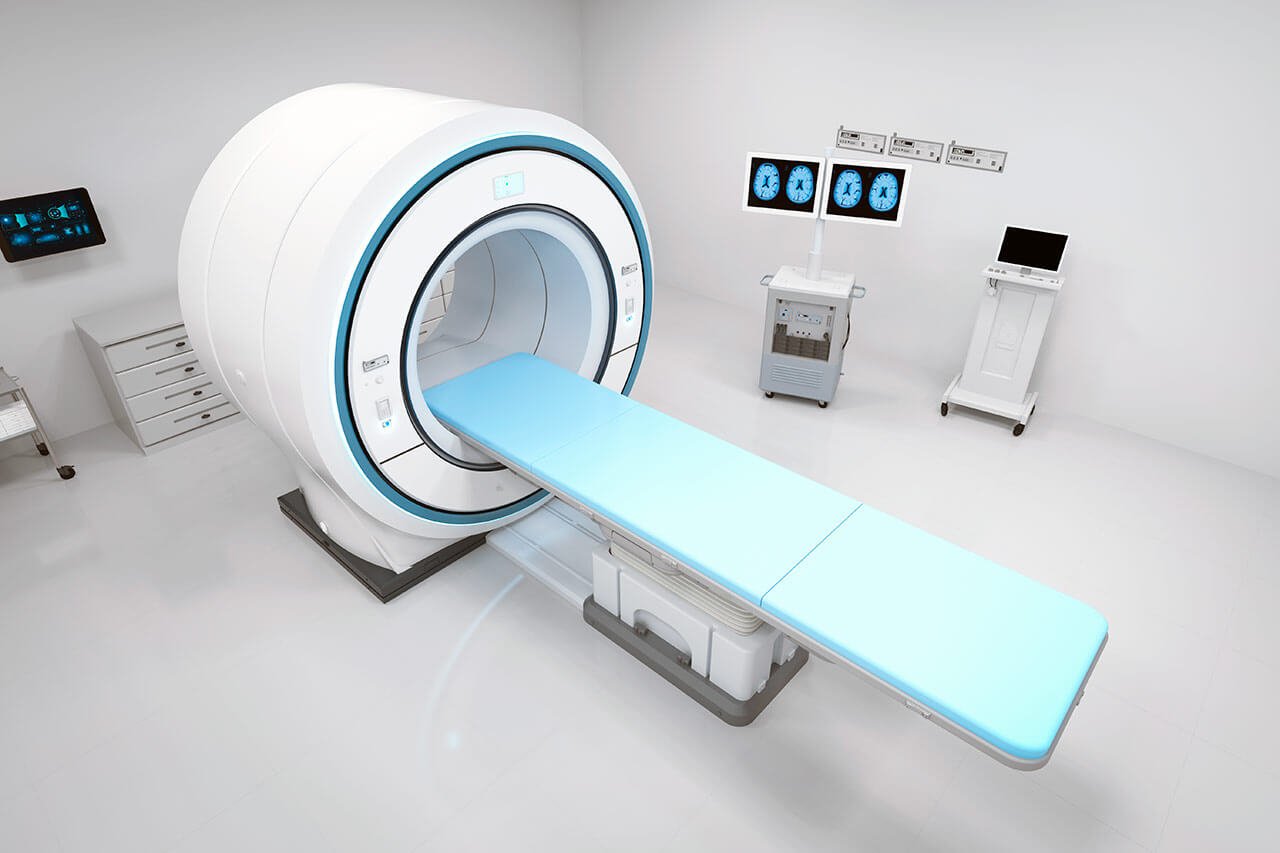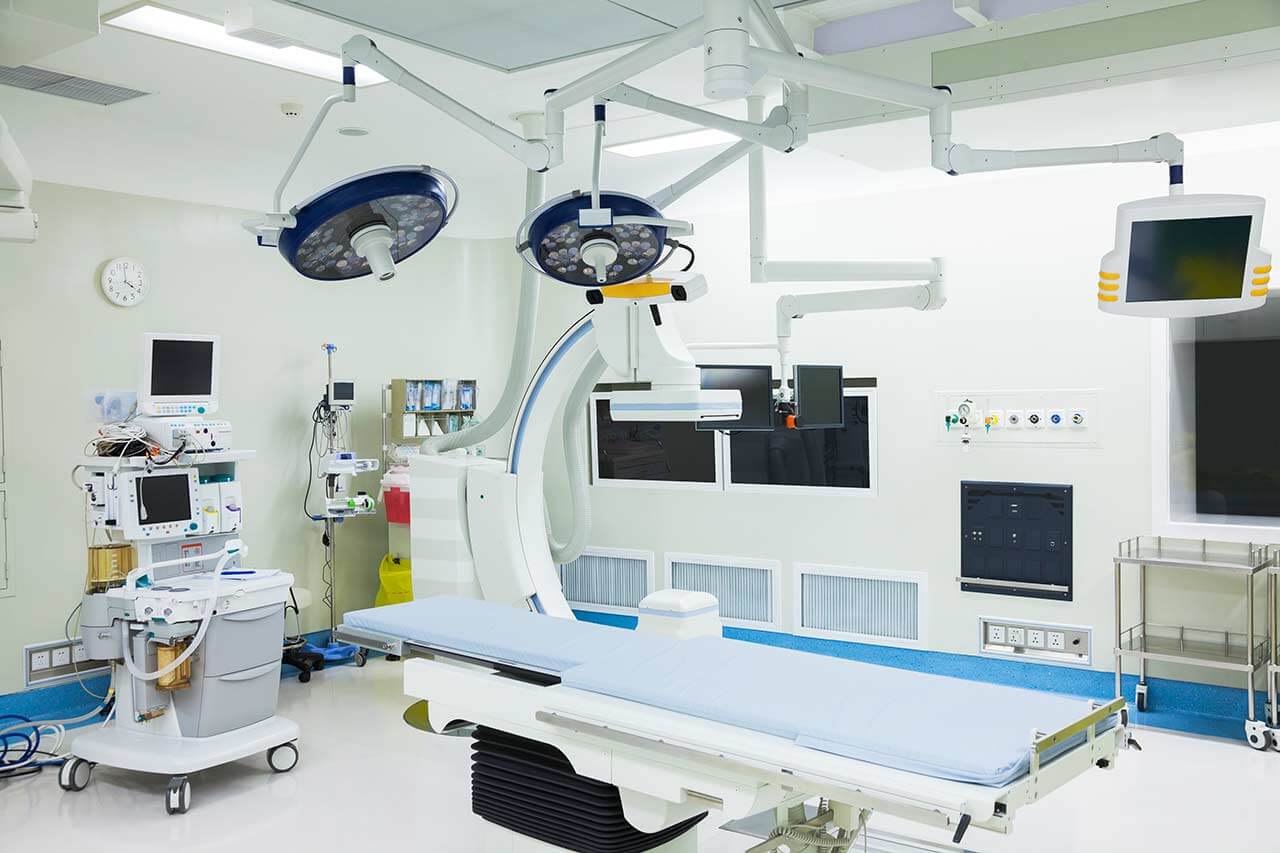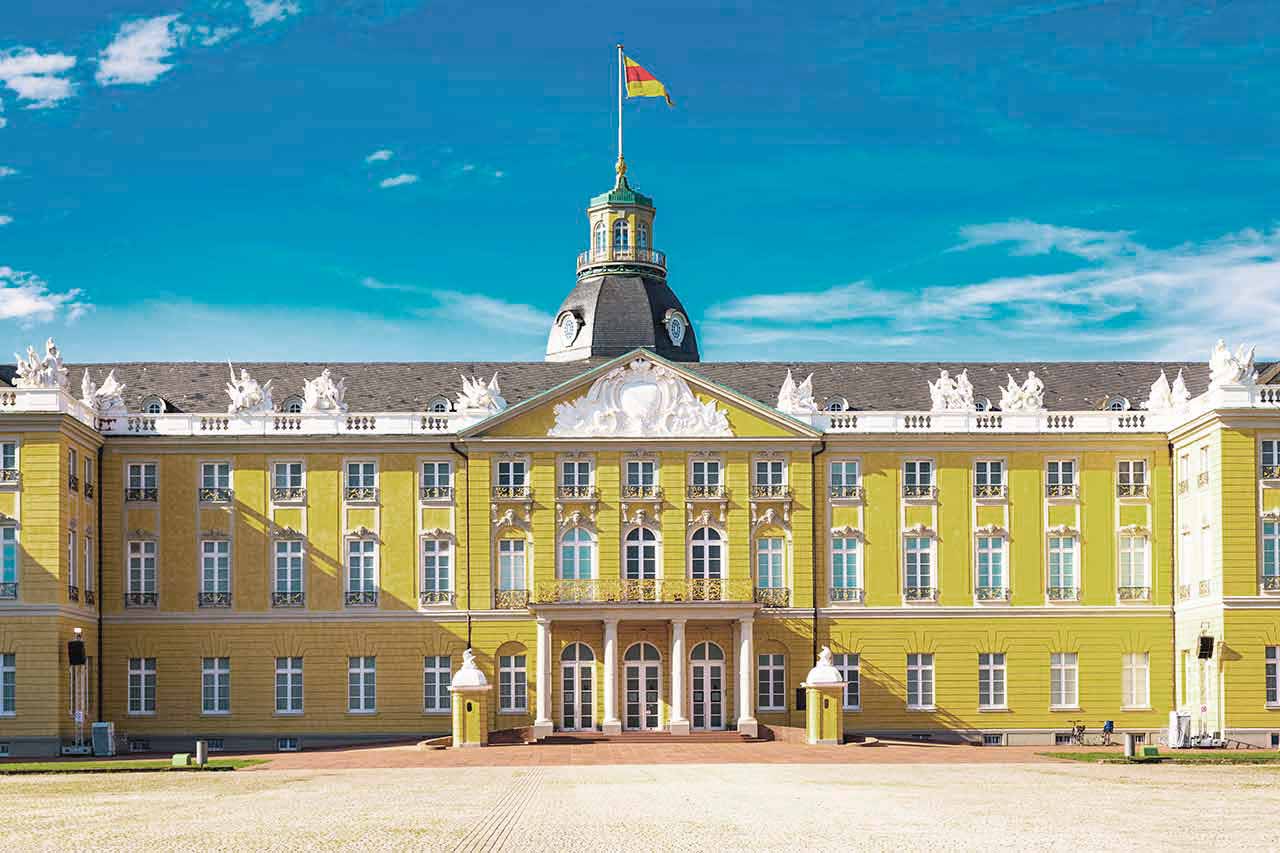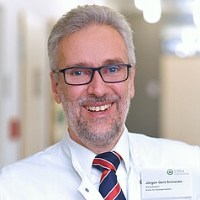
The program includes:
- Initial presentation in the clinic
- case history collection
- general clinical examination
- laboratory tests:
- complete blood count
- general urine analysis
- biochemical analysis of blood
- TSH-basal, fT3, fT4
- tumor markers (thyroglobulin (TG),
TG antibodies (TgAb)) - indicators of inflammation
- indicators of blood coagulation
- ultrasound scan of the thyroid gland
- thyroid scintigraphy
- radioiodine therapy
- symptomatic treatment
- cost of essential medicines
- nursing services
- stay in the hospital with full board in 2-bed room
- elaboration of further recommendations
How program is carried out
During the first visit, the doctor will conduct a clinical examination and go through the results of the available diagnostic tests. After that, you will undergo the necessary additional examination, such as the assessment of liver and kidney function, ultrasound scan of the thyroid gland and lymph nodes of the neck, thyroid scintigraphy. This will allow your doctor to assess how effective radioiodine therapy will be and how well you will tolerate it. In addition, the doctor will calculate the dosage of the drug you need.
Radioiodine therapy with I-131 includes oral administration of the drug. You will take 1 to 4 radioactive iodine capsules or drink about a teaspoon of liquid with radioactive iodine. You will take the drug in your ward, without visiting the manipulation room or operating room.
After taking radioactive iodine, you will stay in your ward for 24 to 48 hours. The next morning after the procedure, the dosimetrist will determine the amount of radiation in your body. If the amount is low, you will be allowed to leave your ward and will be discharged from the hospital. If the amount is high, then the dosimetric control will continue for another day, until a low amount of radiation in your body is detected.
The isotope I-131 can accumulate not only in the thyroid gland, but also partially in the salivary glands. This can cause dry mouth. To get rid of this side effect, you will dissolve sour candies, as this stimulates the work of salivary glands.
The drug is quickly excreted by the kidneys, and after 48 hours you will no longer pose a danger to others. After the procedure, you should drink at least 1 glass of water per hour and visit the toilet regularly. This will allow you to quickly remove radioactive iodine from the body. Food can be usual, without excess iodine in the diet.
During these 48 hours, you can read, use a mobile phone, tablet or computer. All these devices will not be a source of radiation in the future.
Control examination includes scintigraphy, which is performed 7-10 days after radioiodine therapy. Based on the results of the examination, the doctor will determine how well the cells of the thyroid gland (or cancer metastases) have accumulated radioactive iodine. In a few weeks after the procedure, you will have a control blood test for thyroid hormones. In the future, you will visit an endocrinologist regularly.
Required documents
- Medical records
- MRI/CT scan (not older than 3 months)
- Biopsy results (if available)
Service
You may also book:
 BookingHealth Price from:
BookingHealth Price from:
About the department
The Department of Nuclear Medicine at the ViDia Hospital Karlsruhe provides the full range of medical services in the area of its specialization. Patients can undergo diagnostic tests using radiopharmaceuticals and radionuclide therapy here. The department is equipped with advanced gamma cameras and other systems, which play an important role in providing high-quality service in this medical field. Of particular interest to the department's team of doctors are thyroid scintigraphy, skeletal bone scintigraphy, and myocardial perfusion scintigraphy. The department also frequently performs radionuclide tests of the kidneys, gastrointestinal tract, brain, and other organs. The most demanded treatment method in the department is radioiodine therapy for benign and malignant thyroid diseases. The department's specialists also treat inflammatory joint diseases using radiosynoviorthesis, pain management for bone metastases, and radioisotope therapy for malignant tumors (for example, in the abdominal cavity and lungs). The medical facility strictly meets radiation protection standards, so patients can be sure that they will receive not only effective but also the safest possible treatment. Prior to each procedure, the patient receives detailed recommendations from the attending physician regarding preparation for the examination or therapy. The department is headed by Dr. med. Jürgen Schneider.
The department performs thyroid scintigraphy almost every day. This examination is the only method by which doctors can assess the functional activity of thyroid nodules. Based on the scintigraphy results, the specialists can clearly see "hot" and "cold" nodules: the first ones actively accumulate radioactive iodine, indicating high hormonal activity, while the second ones do not accumulate radioactive iodine at all or demonstrate minimal isotopic accumulation. One of the main causes of the formation of "hot" nodules in the thyroid gland is an autoimmune process that stimulates the production of thyroid hormones. "Cold" nodules may indicate the presence of a cyst, an inflammatory process, or even a malignant tumor. The thyroid scintigraphy procedure begins with an intravenous injection of radioactive iodine, after which a gamma camera image is taken 15-20 minutes later. The patient lies on the examination table of the device during the imaging process, which takes no more than 5 minutes.
Another popular diagnostic method is bone scintigraphy (osteoscintigraphy). This examination is often performed to detect bone metastases in patients with cancer, particularly in cases of prostate cancer in men and breast cancer in women. The essence of the diagnostic method is identical to thyroid scintigraphy: a radioactive agent is injected intravenously, selectively accumulating in areas with increased metabolism. The more active the tissues, the more substance they accumulate. After the administration of the radioisotope, the patient remains in a shielded room for 2-3 hours, as it takes time for the substance to accumulate in the bone system. Subsequently, the doctors take images with a gamma camera. This takes no more than 30 minutes. Osteoscintigraphy allows for the detection of metastatic foci in the early stages, when they respond well to treatment. Another advantage of bone scintigraphy is that the method allows the doctors to perform a single-stage examination of the entire skeleton.
As for the treatment, a special focus in this field is the use of radioiodine therapy for treating benign and malignant thyroid diseases. For example, the department's doctors often admit patients with hyperthyroidism, in which radioiodine therapy is an alternative to surgery in many cases. During treatment, the patient takes a capsule with radioactive iodine. The dose of the drug is individually determined based on the results of thyroid scintigraphy. Once in the body, the radiopharmaceutical agent reaches the thyroid gland through the bloodstream and accumulates in malignant cells without any negative effect on healthy cells. Radioiodine therapy is carried out on an inpatient basis in a special room with observance of radiation protection requirements.
The doctors at the medical facility also successfully perform radiosynoviorthesis for chronic inflammatory joint diseases. With the use of an intra-articular injection of a radionuclide agent, the inflamed synovial membrane is irradiated, as a result of which its superficially hypertrophied layers are destroyed. The irradiation is completely limited to the synovial membrane area, as the radionuclides used emit radiation with a maximum range of a few millimeters. The radiosynoviorthesis procedure is performed on an outpatient basis and can be repeated if necessary. Local anesthesia is administered for the patient's maximum comfort. After the injection, the joint is immobilized with a special splint because it needs to remain immobile for the following 48 hours to achieve the best therapeutic effect.
The department's range of medical services includes:
- Diagnostics
- Thyroid scintigraphy
- Bone scintigraphy
- Kidney scintigraphy
- Gastrointestinal scintigraphy
- Brain scintigraphy
- Myocardial perfusion scintigraphy
- Treatment
- Radioiodine therapy for benign and malignant thyroid diseases
- Radiosinoviorthesis for chronic inflammatory joint lesions
- Pain management for cancer and bone metastases
- Radionuclide therapy for malignant tumors of the lungs, gastrointestinal tract, prostate gland, and other cancers
- Other diagnostic and treatment methods
Photo of the doctor: (c) ViDia Kliniken Karlsruhe
About hospital
The ViDia Hospital Karlsruhe is a modern medical facility with a rich history and traditions. The medical complex is an academic hospital of the University of Freiburg, granting patients access to advanced university medicine and the very latest therapeutic developments. The hospital first opened its doors in 1851 and, since then, has maintained a leading position in the European medical arena. The health facility offers a state-of-the-art technical base, comfortable infrastructure, and highly qualified doctors. All this allows the hospital to provide patients with top-class healthcare in accordance with modern standards. In addition, the hospital's team honors Christian traditions, emphasizing a humane attitude towards the patient and striving to provide understanding and support.
The hospital employs a large team of specialists, consisting of over 3,200 staff members, including 400 highly qualified physicians. The medical team admits more than 50,000 inpatients every year, and about 100,000 patients are diagnosed and treated on an outpatient basis or in a day hospital. More than 3,000 babies are born in the maternity rooms of the Department of Obstetrics every year. More and more patients, including those from abroad, come to the hospital for medical care annually.
The hospital has 24 specialized departments with 25 highly certified, narrowly focused centers integrated into them. A large Cancer Center certified according to the German Cancer Society (DKG) standards also operates here. Thus, one of the main clinical focuses of the medical complex is cancer treatment. The hospital also excels in other specialties, such as general surgery, abdominal surgery, thoracic surgery, orthopedics, cardiology, endocrinology, otolaryngology, pulmonology, gastroenterology, and others. There are 37 operating rooms available here for surgical treatment, the equipment of which corresponds to the highest technical level. Priority is given to performing minimally traumatic operations using minimally invasive, endoscopic, arthroscopic, and endovascular techniques.
The ViDia Hospital Karlsruhe enjoys a high reputation in Germany and far beyond its borders. The health facility successfully combines innovative medicine with Christian values, thanks to which the patient receives not only effective treatment but also care, understanding, and support.
Photo: (с) depositphotos
Accommodation in hospital
Patients rooms
The patients of the ViDia Hospital Karlsruhe stay in comfortable single and double rooms with modern design. Each patient room has an ensuite bathroom with a shower and a toilet. The standard room furnishings include an automatically adjustable bed, a bedside table, a table and chairs, a wardrobe, a telephone, a TV, and a radio. Wi-Fi access is also available in the patient rooms.
Patients can also be accommodated in enhanced comfort rooms. These rooms are very spacious and are additionally equipped with a safe, a mini-fridge, and upholstered furniture.
Meals and Menus
The patients of the hospital are offered three tasty meals a day: breakfast is served buffet-style, and there are several set menus to choose from for lunch and dinner.
If, for some reason, you do not eat all of the foods, you will be offered an individual menu. Please inform the medical staff about your dietary preferences prior to treatment.
Further details
Standard rooms include:
![]() Toilet
Toilet
![]() Shower
Shower
![]() Wi-Fi
Wi-Fi
![]() TV
TV
Religion
There are several chapels on the territory of the hospital. Regular Catholic and evangelical services are held here. Patients can also visit one of the chapels at any time to find a quiet place to pray, if desired.
Accompanying person
Your accompanying person may stay with you in your patient room or at the hotel of your choice during the inpatient program.
Hotel
You may stay at the hotel of your choice during the outpatient program. Our managers will support you for selecting the best option.
